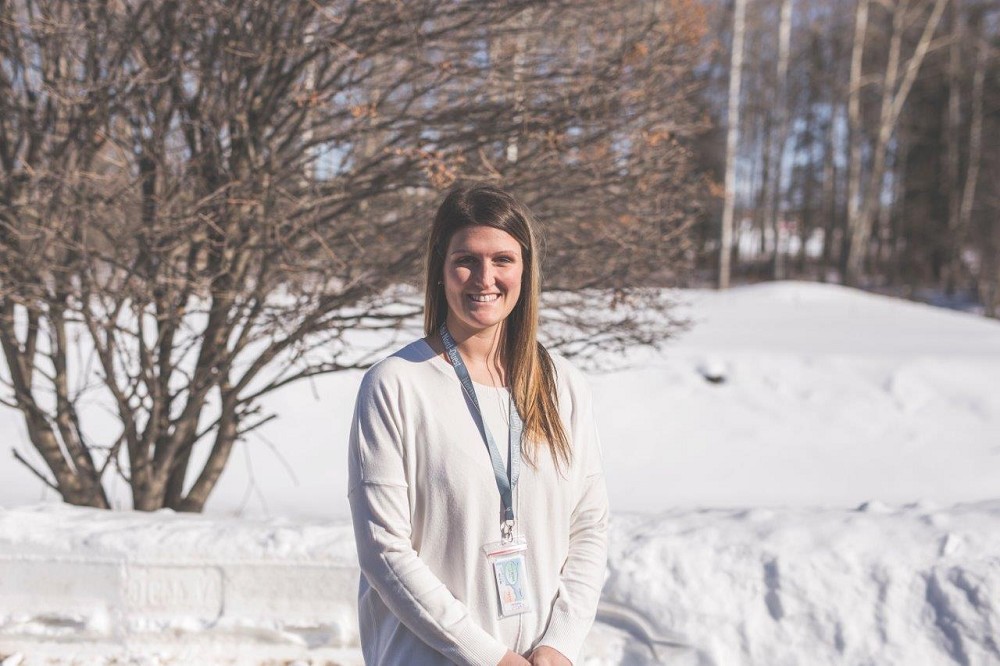Mental Health and Addictions Nurses in Schools (MHAN)
by the North West LHIN
 Miranda Thibeault, a Mental Health and Addictions Nurse (MHAN) who works out of a local school in Thunder Bay.
Miranda Thibeault, a Mental Health and Addictions Nurse (MHAN) who works out of a local school in Thunder Bay.Care providers in Northwestern Ontario often face unique challenges that come with a large geography and a dispersed population. The most common challenges are often related to access to care, and the barriers faced by the people of the region in accessing their care in a manner that is convenient, timely, and close to home. Recognizing these challenges, particularly when it comes to mental health services for young people, a program was put in place to help ensure youth who need the support of a care provider are able to access the care they need. The Mental Health and Addictions Nurses in Schools (MHAN) program places mental health and addictions nurses in schools to provide on-site support to students in need.
“In terms of how it works, we’ll receive a referral – whether from the hospital, the school, a family physician, or another agency,” says Miranda Thibeault, a Mental Health and Addictions Nurse (MHAN) who works out of a local school in Thunder Bay. “So once we get the referral, which can be for any suspected issue related to mental health or addictions, we’ll gather all the necessary information, any necessary consents, and then do what we can to provide the support the child needs, on site at school, or we can direct them to the appropriate services.”
Mental Health and Addictions Nurses, like Miranda, work out of schools across the region and help children and young adults face their mental health and addictions challenges in a familiar, safe and accessible environment.
“This really is a nursing role. We have our little nursing bag and all the tools you expect a nurse to have, the only difference is that our focus is on mental health and addictions, and we’re working directly in the schools, so we can build trust and relationships with students who might not be as likely to come forward or seek care if we weren’t available as an option. And we definitely get walk-ins and self-referrals, which shows us these services are needed, and are playing an important role.”
Some of the most common challenges faced by Miranda’s student patients are stress and anxiety related, particularly around exam time, but many students are also facing challenges related to suicidal ideation, self-harm, substance abuse, or even family trauma.
“We were put in the schools to fill gaps in service – it’s why we’re here,” says Miranda. “We don’t only provide care, but we also help with system navigation, transition to and from school between hospitals or treatment clinics, medication management, and we aim to reduce readmissions and hospital visits.”
The work of MHANs, like Miranda, is varied. It requires these dedicated care professionals to work compassionately with children and youth, as well as their families, to help them receive the best care possible while navigating the care system. The work presents unique challenges, but also its own unique rewards.
“The best part is when you get to see that healing take place,” says Miranda. “When you get someone into a program, or someone gets stabilized on their medication that feels great. But there are also just moments where you’ve made that therapeutic relationship and connection, and for the first time, a child is talking to someone – to you – about their story. Building that trust and showing someone that you are going to advocate for them is extremely rewarding.”